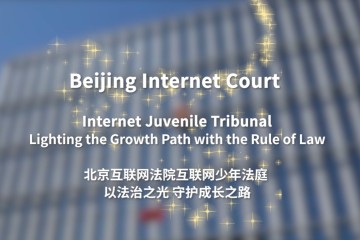Amended Copyright Law means better safeguards, innovation: Judge
The efforts made in protecting copyrights, especially those in cyberspace, have continuously increased over the past 30 years, an official from China's top court said on Tuesday.
Since the Copyright Law was unveiled in 1991, courts nationwide concluded more than 1.36 million copyright disputes, of which, over 70 percent related to the internet, according to Lin Guanghai, chief judge of the Intellectual Property Rights Division with the Supreme People's Court.
He released the number while delivering a speech on how Chinese courts gave judicial support on copyright protection in the past three decades at the National Conference on Copyright Protection and Development in Digital Environment, held by the National Copyright Administration, in Beijing.
In the past five years, "most copyright infringements happened in cyberspace, with rapid annual growth," he said, estimating the figure will remain high and rise further with the fast development of 5G technology.
He noted courts at all levels will strictly implement and accurately apply the new amended Copyright Law, which comes into effect on Tuesday, pledging to improve the quality of case hearings to help the country better safeguard works and encourage innovation.
While optimizing the process of copyright registration, the National Copyright Administration also worked with other government agencies, including those on public security and cyberspace, in fighting online copyright infringements in consecutive years. The authorities released cases and inspection results to enhance public awareness on IPR protection.
On Tuesday, the administration revealed 10 influential copyright cases in 2020, which covered piracy in various aspects, including films, books and online music and online literature.
In a case solved by Beijing Haidian District People's Court in December last year, a literature and information technology company was ordered to pay a fine of 1.5 million yuan ($235,460) after it infringed on more than 5,000 online books and sold them to users via more than 10 smartphone applications.
A total of 12 people from the company were also fined and given sentences for seriously harming copyrights, the administration said.
Considering some online industries, including livestreaming and short videos, are often reported as piracy by the public, it added it will pay closer attention and boost governance.

 Judicial White Paper
Judicial White Paper
 Play
Play Play
Play Online Lawsuit Guide
Online Lawsuit Guide Beijing Internet Court Lawsuit Service WeChat Account
Beijing Internet Court Lawsuit Service WeChat Account  Beijing Internet Court WeChat Account
Beijing Internet Court WeChat Account